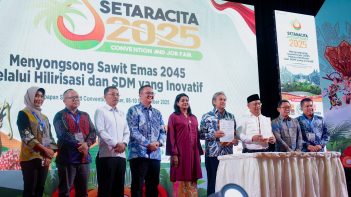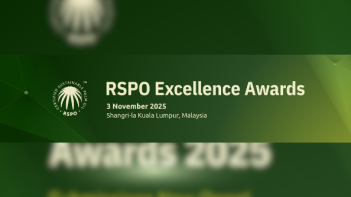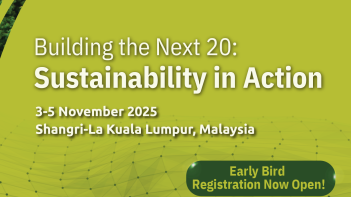RSPO members from North America met in Chicago on 26 June to discuss what Shared Responsibility meant for downstream supply chain actors. Proforest and LiSeed Consulting partnered with RSPO to facilitate the public consultation process, which focused on the Shared Responsibility Task Force (SRTF) recommendations document that was released prior to the public consultation. RSPO members engaged in a day-long programme of roundtable discussions and activities, culminating in comments that were submitted to the SRTF.
The SRTF recommendations document is based on initial thinking from the restructure subgroup of the Principles and Criteria (P&C) Review Taskforce, a review of existing RSPO systems (current and planned), organisational documents, RSPO Secretariat’s input, 75 interviews and surveys with stakeholders from all sectors, four SRTF teleconferences, and an in-person SRTF workshop.
Aimee Russillo of LiSeed Consulting said, "The public consultation provided an opportunity for supply chain actors in North America to receive first-hand information on the proposal for the requirements of the non-grower members of RSPO to transform the palm oil sector following the transformative RSPO 2018 Principles and Criteria. Participating members discussed and provided input on proposed recommendations that would enable RSPO members to align and multiply efforts for collective action and impact.”
The public consultations took place from 12 June to 11 July 2019 and an online survey was available for all RSPO members to provide feedback and input. The SRTF is now reviewing the comments received as they finalise their recommendations on shared responsibility.
To summarise the public consultation process, Aimee said that the idea of shared responsibility has been agreed upon and discussed for many years, but participants in the public consultations have collectively shown that it is time to put rhetoric to action and lead by example.
Clause 3.2 of the RSPO Code of Conduct for Members, applicable to all members, states that members to whom the RSPO P&C do not apply directly will implement parallel standards relevant to their own organisation, which cannot be lower than those set out in the P&C. During the 2018 P&C Review, it was agreed that a transparent process was needed to address the details of implementing shared responsibility according to the Code of Conduct.
Visit the RSPO website for more information and relevant documents on the SRTF. Questions can be directed to Oi Soo Chin, Impacts & Evaluation Director at [email protected] and Dan Strechay, Interim Director of Outreach & Engagement and U.S. Representative at [email protected].
Keep reading

RSPO x JaSPON Conference and Member Engagement Forum 2025 Spotlights Japan’s Sustainability Success and Market Growth
Call for Expression of Interest: Independent Investigation of a Complaint
Call for Expression of Interest: Mexico National Interpretation Task Force for 2024 RSPO Principles and Criteria (RSPO P&C) and Independent Smallholder (ISH) Standard

RSPO–APKASINDO Partnership to Boost Inclusive Growth, Certification, and Market Access for Oil Palm Smallholders

Open Letter to COP30 President: Integrating Forests and Biodiversity: A Policy Central to Paris Agreement Success

Bridging the Auditing Divide: Key Takeaways from the RSPO Assurance Forum 11

Extension of RSPO Excellence Awards 2025 Submission Deadline!





